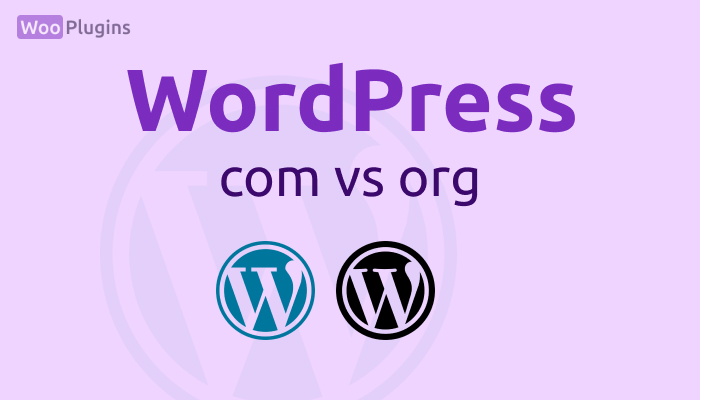When you decide to build a website with WordPress, one of the first questions you’ll encounter is: WordPress.com or WordPress.org? Understanding the differences between these two platforms is crucial for making the right choice for your business. In this guide, we’ll break down everything you need to know about WordPress.com vs WordPress.org to help you decide which one is best suited for your needs.
What is WordPress?
Before diving into the differences, let’s clarify what WordPress is. WordPress is a powerful Content Management System (CMS) that powers over 40% of websites globally. It’s known for its flexibility, ease of use, and ability to scale from small blogs to large e-commerce sites. However, WordPress comes in two distinct versions: WordPress.com and WordPress.org.
WordPress.com vs WordPress.org: The Key Difference
The primary distinction between WordPress.com and WordPress.org lies in hosting. WordPress.com is a fully hosted platform managed by Automattic, while WordPress.org is a self-hosted solution where you take full responsibility for your website’s hosting and management.
WordPress.com: Overview and Features
WordPress.com is a hosted platform designed for ease of use, especially for beginners. Here’s what you need to know:
Advantages of WordPress.com
- Ease of Setup: Get your website running quickly without worrying about hosting or technical maintenance.
- Free Plan Available: Start with a free plan (your website URL will include a
.wordpress.comsubdomain). - Maintenance-Free: WordPress.com handles updates, security, and backups for you.
- Built-in Features: Includes some pre-installed features such as Jetpack and basic SEO tools.
Limitations of WordPress.com
- Limited Customization: On the free and lower-tier plans, customization options for themes and plugins are restricted.
- Monetization Restrictions: You can’t fully monetize your site with ads unless you’re on a paid plan.
- Branding: Free plans include WordPress.com’s branding, which may not look professional for businesses.
WordPress.org: Overview and Features
WordPress.org is a self-hosted platform that offers complete control over your website. It’s the go-to option for businesses and advanced users who need flexibility.
Advantages of WordPress.org
- Full Control: You own your website and have unrestricted access to its files and settings.
- Unlimited Customization: Use any theme or plugin, whether free or premium, to design your site exactly as you like.
- Monetization Freedom: Easily integrate ads, affiliate marketing, and other monetization strategies.
- Scalability: Perfect for growing businesses with advanced needs, such as e-commerce or membership sites.
Challenges of WordPress.org
- Requires Technical Knowledge: Setting up hosting, managing updates, and securing your site are your responsibilities.
- Costs: You’ll need to pay for hosting, a domain name, and possibly premium themes or plugins.
WordPress.com vs WordPress.org: Side-by-Side Comparison
| Feature | WordPress.com | WordPress.org |
|---|---|---|
| Hosting | Managed by WordPress.com | Self-hosted, user’s responsibility |
| Domain | Free subdomain or custom (paid) | Custom domain (user-provided) |
| Customization | Limited (free/low-tier plans) | Unlimited |
| Plugins & Themes | Restricted (free/low-tier plans) | No restrictions |
| Monetization | Restricted (free/low-tier plans) | Full control |
| Maintenance | Fully managed | User-managed |
| Cost | Free to premium tiers | Hosting and other costs vary |
How to Choose: WordPress.com or WordPress.org?
Choose WordPress.com if:
- You’re a beginner looking for a hassle-free setup.
- You need a personal blog or a small website without advanced features.
- You’re not ready to manage hosting and technical details.
Choose WordPress.org if:
- You’re serious about growing your business online.
- You want to fully customize your site’s design and functionality.
- You plan to monetize your site or build a complex e-commerce store.
Costs to Consider
| Expense | WordPress.com (Free Plan) | WordPress.com (Premium Plans) | WordPress.org |
| Hosting | Included | Included | Paid (varies by provider) |
| Domain Name | Optional (paid) | Included in some plans | Paid |
| Themes and Plugins | Limited | Restricted access | Free to premium options |
| Total Costs (Annually) | $0 | $48–$540+ | $60–$300+ |
Migrating from WordPress.com to WordPress.org
If you start with WordPress.com and later need more control, migrating to WordPress.org is possible. Many tools and tutorials are available to help you move your content, domain, and settings.
FAQ: Common Questions about WordPress.com and WordPress.org
Can I use both WordPress.com and WordPress.org?
Yes, it’s possible to use both platforms depending on your needs. For example, you might start a simple blog on WordPress.com and later migrate it to WordPress.org for more advanced features and control.
Which platform is better for e-commerce?
WordPress.org is the better choice for e-commerce as it offers complete flexibility and scalability. You can use plugins like WooCommerce to create and manage your online store.
Do I need coding skills to use WordPress.org?
No, coding skills are not mandatory, but they can be helpful for advanced customizations. WordPress.org provides many user-friendly tools and plugins to simplify website management.
Can I switch from WordPress.com to WordPress.org later?
Yes, you can migrate your site from WordPress.com to WordPress.org. There are tutorials and migration services available to make the process easier.
Can I have 2 websites on WordPress?
Yes, you can have multiple websites on WordPress. WordPress.org allows you to create as many websites as your hosting plan supports. On WordPress.com, you can manage multiple sites under one account but might need separate plans for each site.
Can I switch from WordPress.com to WordPress.org?
Yes, switching is possible, and many users transition as their website needs grow. WordPress offers guides to help migrate your content, domain, and other settings seamlessly.
Is WordPress.com shared hosting?
Yes, WordPress.com uses shared hosting for its free and lower-tier plans, meaning multiple sites share the same server resources. Higher-tier plans may offer more dedicated resources.
What is WordPress.com used for?
WordPress.com is ideal for personal blogs, small business websites, and users who prefer a managed platform. It’s often used by beginners due to its simplicity and low maintenance requirements.
Is WordPress.com free?
WordPress.com has a free plan with basic features, but to remove branding, use a custom domain, or access advanced options, you’ll need a paid plan.
Is WordPress.com any good?
Yes, WordPress.com is a great option for users who prioritize ease of use and don’t need extensive customization. It’s particularly suitable for personal projects, small websites, or those new to website building.
Final Thoughts
Choosing between WordPress.com VS WordPress.org depends on your needs, budget, and technical expertise. For small-scale personal projects, WordPress.com’s simplicity might suffice. However, if you’re planning to grow your business or need advanced features, WordPress.org is the superior choice. Whichever platform you choose, WordPress offers a powerful foundation for building a successful online presence.





